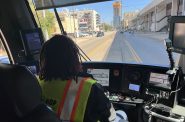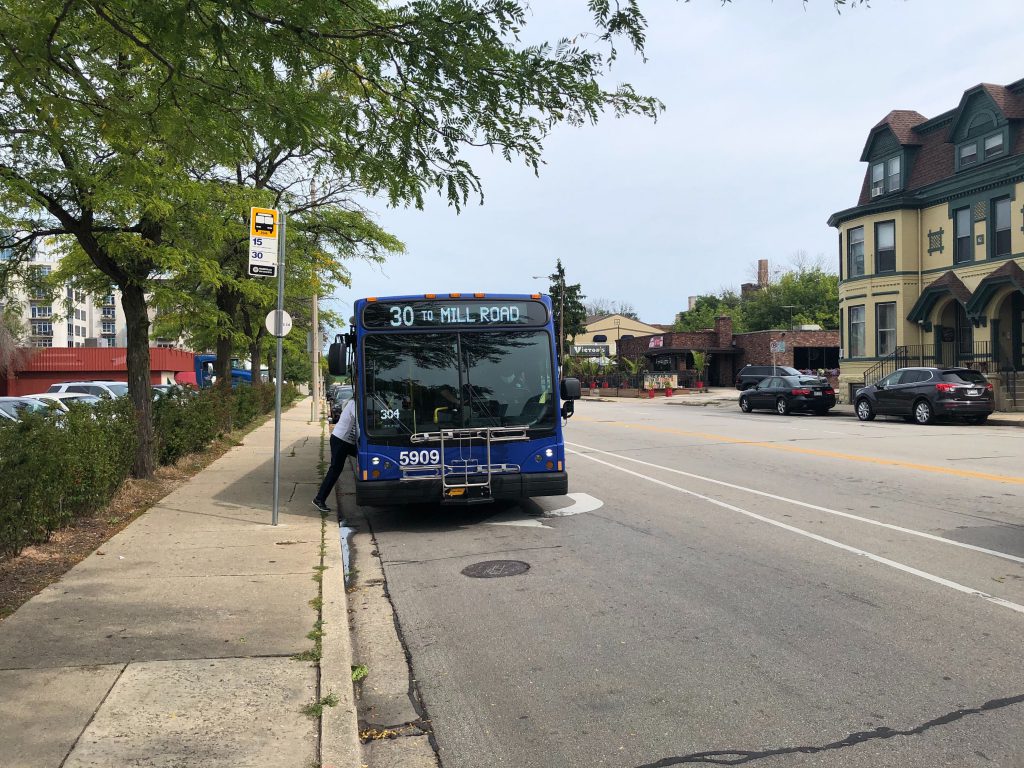Funding Transit Would Make Wisconsin More Welcoming
Will the Wisconsin State Legislature get on board?
With the issue of a declining workforce, the state should approach its current budget surplus with a focus on investing to ensure that the next generation of workers wants to live in Wisconsin.
Studies demonstrate that young people are driving less and prefer living in places that feature quality transit.
Despite this, in 2010 Wisconsin cut funding to transit by 10% and has only partially restored it since. What signal does it send to potential future residents when state policymakers shun a public service that is widely recognized as a priority among the nation’s emerging and future workforce? According to a 2021 report by Forward Analytics for Wisconsin, the decade span from 2010 – 2020 “was the smallest 10-year increase in the state’s history.” Not only has the state legislature defunded transit across the state, in the last budget cycle it devastated Milwaukee and Madison’s transit funding – cutting funding to the state’s largest cities by 50%.
Of course, critics of investing in transit will note that not everyone prefers transit. Let’s remember that no one is seeking to sit in traffic (whether in a car or on a bus). Public transit is the most effective way to reduce congestion. It costs far less than widening highways.
In fact, this expensive process of widening highways actually does not address congestion. This is because of an underappreciated issue of induced demand, an issue identified in the early 1960s but largely ignored by transportation planners and policymakers since. Wider roads actually just draw more people to drive more on them. Because of this issue, transit is far more effective at reducing congestion. Many people on a bus means less traffic for everyone, including those who never step foot on a bus. Providing a viable alternative to driving with transit makes Wisconsin a more welcoming place for current or possible new residents who value transit, just as transit reduces congestion for current or possible new residents who prefer to drive.
Does a policy to attract young workers make transit investments a good policy for all of Wisconsin?
As important as it is for Wisconsin’s future, investments in transit isn’t just a win for Wisconsin’s future workforce.
As Wisconsin’s significant boomer and generation X population ages, transit will become crucial to ensure their mobility. According to the Administration for Community Living, the U.S. Census “estimates that nearly 26 percent of Wisconsin’s population will be 60 and older by the year 2030, an increase of more than 36 percent from 2012.”
A Transportation for America report highlights the urgency of investing in transit for the nation’s cohort of 65 and up to reduce isolation and improve safety. They note that “to address the mobility needs of seniors, communities, local elected officials and planners must confront the assumption that people would always be able to rely on the automobile as their primary mode of transport.”
It turns out that a key investment to ensure the dignity of Wisconsin’s retiring workforce is conveniently the same thing needed to attract our future workers. When we consider our state’s priorities, it turns out that transit investments benefit all of Wisconsin. Public transit benefits those who prefer transit and those who don’t. It will help Wisconsin retain and attract its future workforce, while providing safe and convenient mobility for its retirees.
Good bus service also benefits all of Wisconsin’s cities. What’s good for LaCrosse’s Municipal Transit Utility (MTU) is good for the Milwaukee County Transit System (MCTS) and all the cities in between. Declining funding hurts Eau Claire Transit and Madison Metro. Starving these systems of funding not only undermines these cornerstones of Wisconsin’s communities, it decreases mobility of current Wisconsin residents and hurts Wisconsin’s ability to attract new residents. From Janesville to Fond du Lac and Stevens Point, members of the Wisconsin Transit Riders Alliance from across the state call on state legislators to think of the future of this state and make long overdue investments to restore service and expand new service in our communities.
As we enter March, let’s leave the madness on the basketball court and make sensible investments for our future. Few investments are such an obvious slam dunk! The state’s budget surplus provides an unique opportunity to make life better for those living here, while attracting the workforce of the future. Wisconsin shouldn’t let this opportunity pass us by.
Op-ed submitted by Nick DeMarsh (Member of Milwaukee Transit Riders Alliance), Peter Adamczak (Member of the Milwaukee Transit Riders Alliance) and Cathy Van Maren (Member of the La Crosse Area Transit Advocates and President of the Wisconsin Transit Riders Alliance).
If you think stories like this are important, become a member of Urban Milwaukee and help support real, independent journalism. Plus you get some cool added benefits.
Op-Ed
-
Trump Administration Has Abandoned Local Governments
 Dec 28th, 2025 by Sup. Jack Eckblad
Dec 28th, 2025 by Sup. Jack Eckblad
-
Making Sense of Judge Dugan’s Conviction
 Dec 22nd, 2025 by Ruth Conniff
Dec 22nd, 2025 by Ruth Conniff
-
Wisconsin Candidates Decry Money in Politics, Plan to Raise Tons of It
 Dec 15th, 2025 by Ruth Conniff
Dec 15th, 2025 by Ruth Conniff
Transportation
-
Streetcar Operators Finalize First Union Contract
 Jan 13th, 2026 by Graham Kilmer
Jan 13th, 2026 by Graham Kilmer
-
Milwaukee Wins $8 Million To Make Streets Safer
 Jan 12th, 2026 by Jeramey Jannene
Jan 12th, 2026 by Jeramey Jannene
-
County Awarded $25 Million for Road Safety Projects
 Jan 12th, 2026 by Graham Kilmer
Jan 12th, 2026 by Graham Kilmer


















Funding for public transit by conservatives is considered some version of socialism that they will always oppose even if businesses depend public transportation for their employees. This also goes for biking and hiking trails and improvements for pedestrian walkways. Republicans don’t even like spending tax money on highways and look for creative ways to not do anything.
Transit leads to increased development along the transit corridors, which is the opposite impact of expanding highways. More development leads to increases in tax revenue. Everyone in the state benefits when tax revenues increase.
Investments in public transit are win-win-win for everyone except politicians who rely on big oil and shipping donors. RRRs (radical, reactionary, republicans) use the tired “it’s socialism” excuse to hide the fact that they own more allegiance to their wealthy donors than the businesses and peoples of Wisconsin.